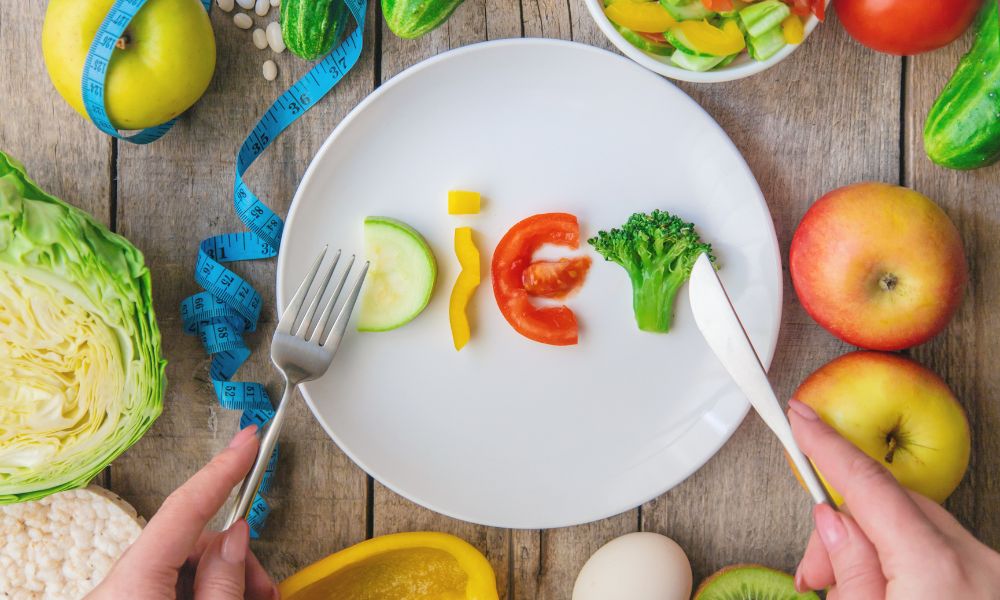Adhesions, which are bands of scar tissue that form between tissues and organs, can cause significant health issues such as small bowel obstruction and infertility. These adhesions often develop after surgeries or infections, leading to abdominal pain and other complications.
While medical treatments are available, a well-balanced diet plays a vital role in the healing process. By incorporating specific nutrients and avoiding certain foods, patients can support their body’s natural healing mechanisms, reduce inflammation, and promote tissue repair.
Understanding Adhesions
Adhesions are fibrous bands that form between tissues and organs, usually as a result of surgery or injury. These bands can cause tissues to stick together, leading to discomfort and potential health complications. Common causes include abdominal or pelvic surgeries, such as appendectomies or cesarean sections, as well as infections and conditions like endometriosis.
The body’s healing response to surgery or injury involves scar tissue formation, which can sometimes develop into adhesions. Symptoms of adhesions include chronic abdominal pain, nausea, and bowel obstruction, and in severe cases, they can restrict organ function and require further surgical intervention.
The Science Behind Diet and Adhesions
Diet significantly impacts the healing process by providing essential nutrients that support tissue repair and reduce inflammation. Nutritional deficiencies can hinder the body’s ability to heal wounds and form healthy scar tissue, potentially leading to prolonged recovery times and increased risk of adhesion formation.
Key nutrients for healing include proteins, which are vital for tissue repair and collagen synthesis, and vitamins like vitamin C and vitamin E, which act as antioxidants and promote collagen deposition. Additionally, minerals such as zinc and magnesium are crucial for wound healing and immune function. Avoiding pro-inflammatory foods, like those high in sugar and fat, as well as processed foods, can help the body focus on repairing tissues and reducing adhesion formation.

Essential Dietary Components for Healing Adhesions
Incorporating protein-rich foods such as lean meats, fish, eggs, and legumes into the diet supports tissue repair and collagen synthesis, which are essential for the growth and repair of all body tissues. Anti-inflammatory foods like fruits, vegetables, and omega-3 fatty acids play a crucial role in reducing inflammation and supporting the healing process.
Fruits and vegetables provide a wealth of vitamins, minerals, and antioxidants that protect cells and promote tissue repair, while omega-3 fatty acids, found in fish oil and certain plant oils, help reduce inflammation and support overall health. Moreover, a diet high in collagen fibers can support gut health and prevent complications such as constipation, which can cause abdominal pain and adhesion formation.
Vitamins and Minerals Crucial for Healing
Vitamin C is essential for collagen synthesis, which is important for wound healing and scar tissue formation. Foods rich in vitamin C, such as citrus fruits, bell peppers, strawberries, and broccoli, can boost collagen production and support the healing process, helping to reduce adhesion formation. Vitamin A is vital for a strong immune system, aiding in effective wound healing and new cell production. Carrots, sweet potatoes, and leafy greens are excellent sources of vitamin A.
Zinc also plays a key role in tissue repair and immune function, found in foods like meat, shellfish, legumes, seeds, and nuts. Magnesium supports protein synthesis and cell maintenance, with rich sources including nuts, seeds, whole grains, and leafy green vegetables.
Hydration and Adhesion Healing
Staying hydrated is essential for healing adhesions, as it supports cellular functions and nutrient transport necessary for tissue repair. Proper hydration helps maintain skin elasticity and promotes effective healing processes. Drinking sufficient water throughout the day ensures that the body remains hydrated and functions optimally during the healing process, aiding in the reduction of adhesion-related complications.
Diet Plans and Strategies
Adopting specific dietary strategies can significantly aid in the healing of adhesions by providing essential nutrients and reducing inflammation. Here are some effective diet plans to consider:
- Whole Foods Diet: Focus on consuming minimally processed foods rich in nutrients, including fruits, vegetables, lean proteins, whole grains, and healthy fats. This approach supports overall health and tissue repair.
- Anti-Inflammatory Diet: Emphasize foods that reduce inflammation, such as fruits, vegetables, nuts, seeds, and omega-3 fatty acids found in fish oil. This diet helps lower inflammation and promotes adhesion healing.
- Mediterranean Diet: Rich in fruits, vegetables, whole grains, lean proteins, and healthy fats like olive oil, this diet supports heart health, reduces inflammation, and aids in overall wellness and adhesion healing.
- Plant-Based Diet: Focus on consuming primarily plant-derived foods, which are high in vitamins, minerals, and antioxidants. This diet supports the body’s healing processes, reduces inflammation, and provides necessary nutrients for tissue repair and immune function.

Foods to Avoid
To support the healing of adhesions, it is important to avoid certain foods that can worsen inflammation and hinder the healing process. Processed foods, which often contain high levels of unhealthy fats, sugars, and additives, can increase inflammation and should be limited. Refined carbohydrates, such as white bread, pastries, and sugary snacks, can cause spikes in blood sugar levels and contribute to inflammation.
Excessive alcohol consumption can impair immune function and delay wound healing. By avoiding these foods, patients can help reduce inflammation and support their body’s natural healing processes.
Integrating Supplements
Sometimes, dietary supplements can be beneficial in supporting the healing process, especially when it is challenging to obtain all necessary nutrients from food alone. Supplements can provide an extra boost of essential nutrients that promote tissue repair and reduce inflammation. Common supplements for healing include fish oil, which is rich in omega-3 fatty acids known for their anti-inflammatory properties, and turmeric, which contains curcumin, a compound with powerful anti-inflammatory effects.
Probiotics can support gut health and enhance immune function, aiding in overall healing. When considering supplements, it is important to consult with a healthcare provider to ensure they are necessary and appropriate for individual needs.
Lifestyle Considerations
In addition to normal diet, certain lifestyle factors can significantly impact the healing of adhesions. Combining a nutritious diet with physical therapy can enhance mobility and reduce the risk of complications. Physical therapy exercises tailored to individual needs can help break down adhesions and improve function. Stress management is another crucial aspect, as chronic stress can negatively affect the immune system and hinder the healing process. Techniques such as mindfulness, meditation, and deep breathing can help reduce stress levels and promote healing.
Lastly, the importance of sleep and rest cannot be overstated. Adequate sleep and rest are essential for the body to repair tissues and recover from injuries. Ensuring a consistent sleep schedule and creating a restful environment can support the healing process and overall well-being.
The Path to Healing Through Diet
Incorporating a well-balanced diet rich in essential nutrients is crucial for the healing of adhesions. By focusing on protein-rich foods, anti-inflammatory ingredients, and essential vitamins and minerals, patients can support their body’s natural healing processes and reduce inflammation. Staying hydrated, avoiding certain foods, and considering supplements when necessary further enhance recovery.
Coupled with lifestyle considerations like physical therapy, stress management, and adequate rest, a strategic diet can significantly improve the healing process. Embrace these dietary and lifestyle changes to aid in your recovery journey and improve your overall well-being.



